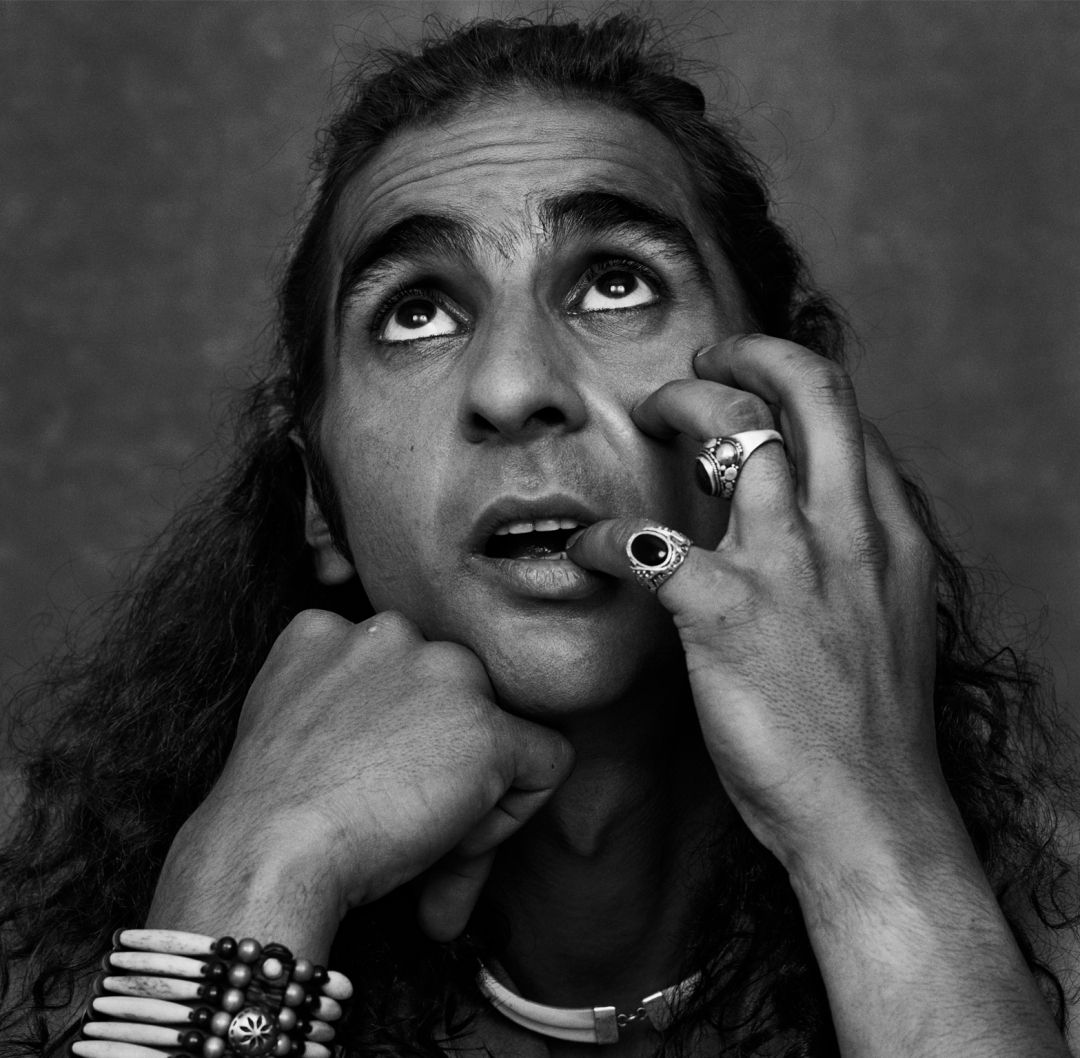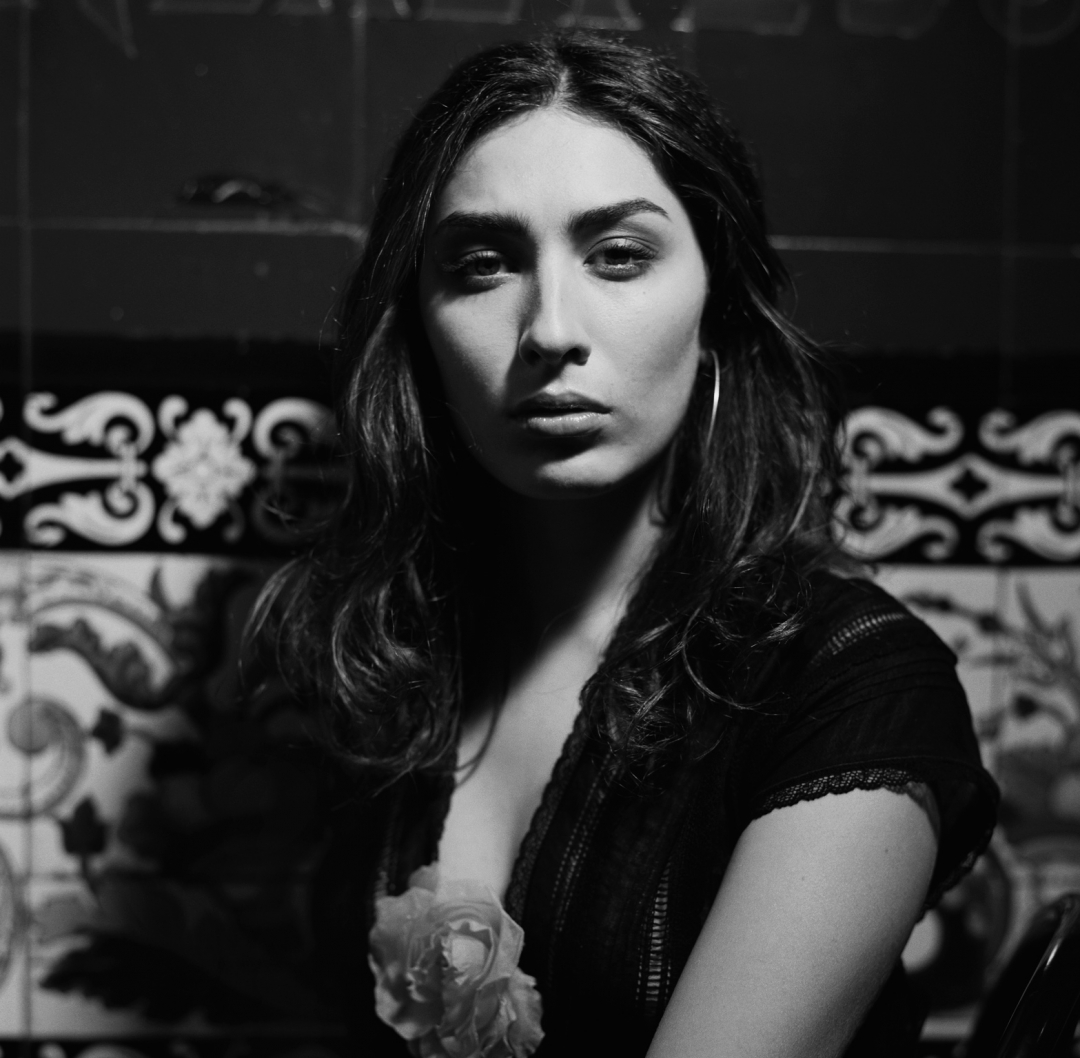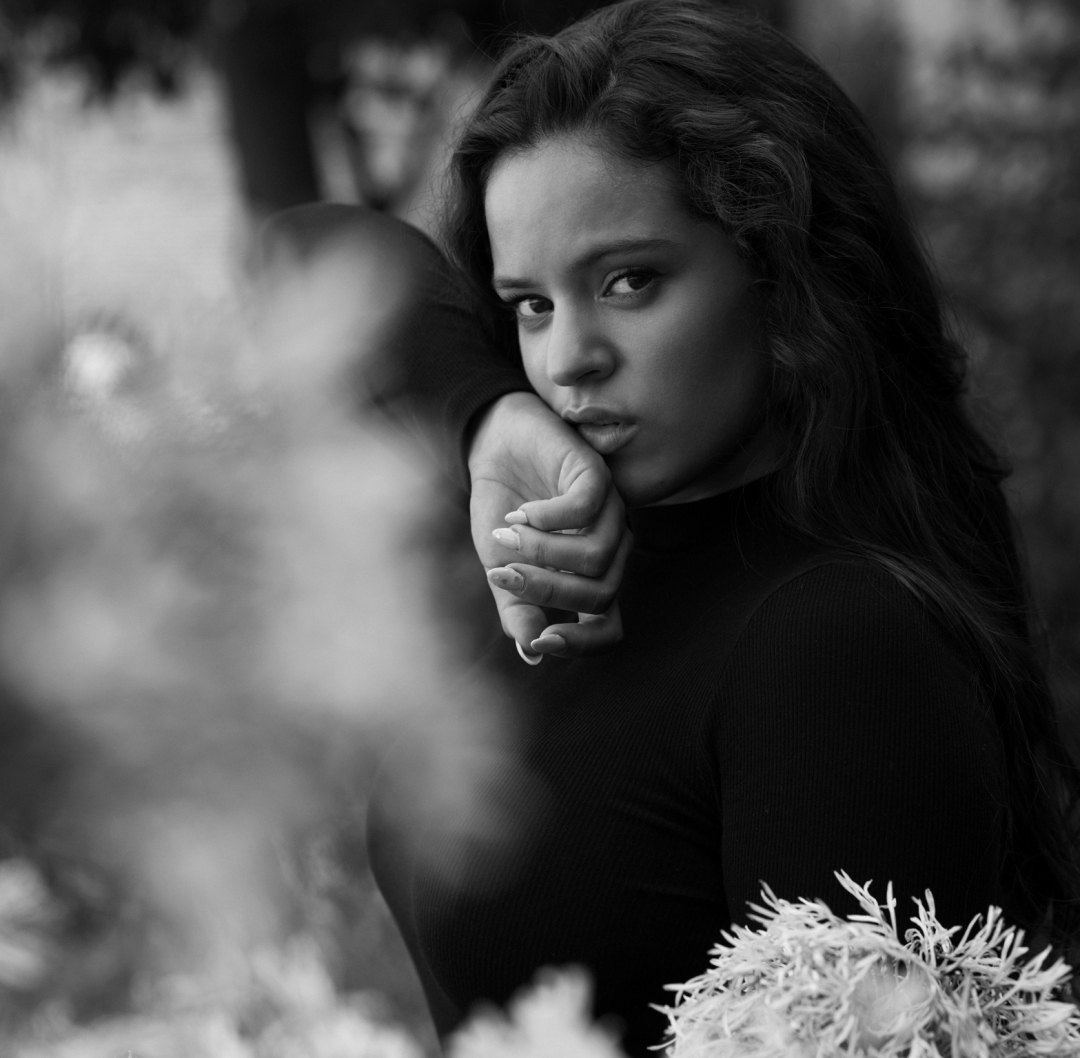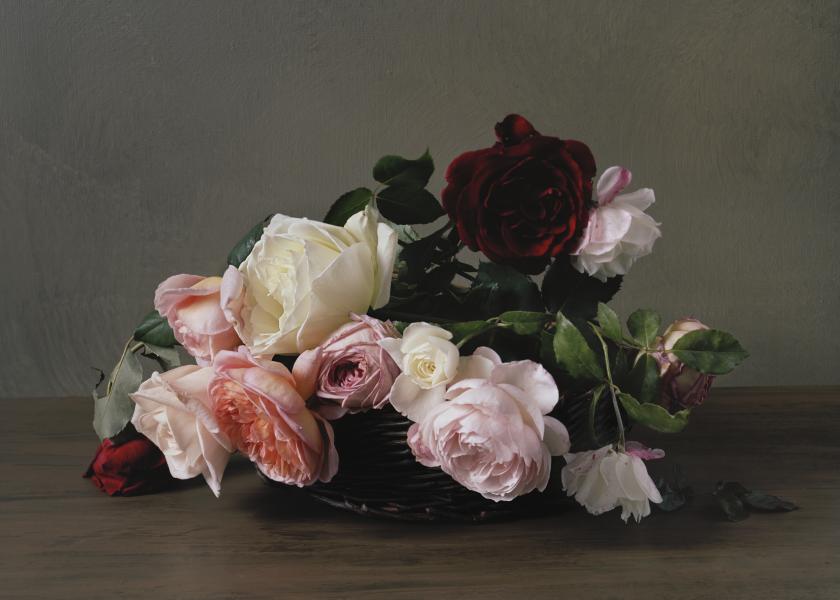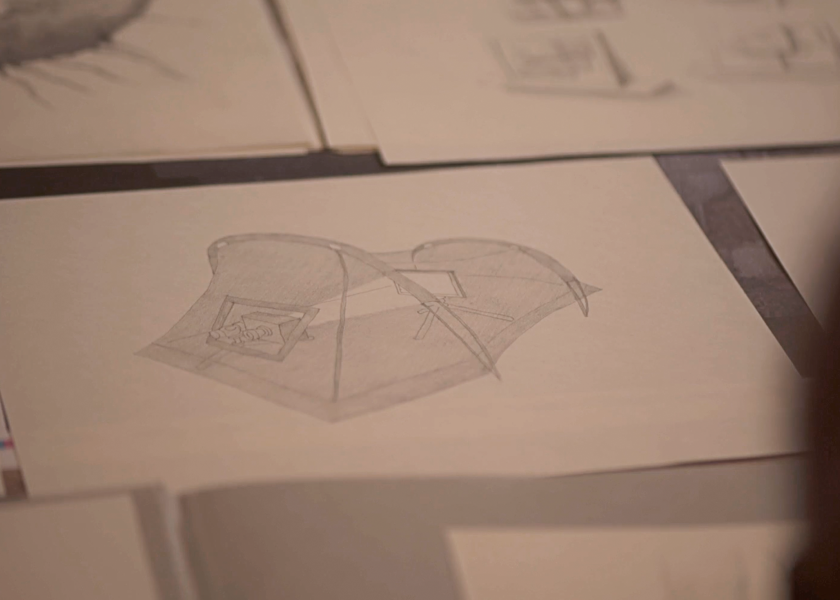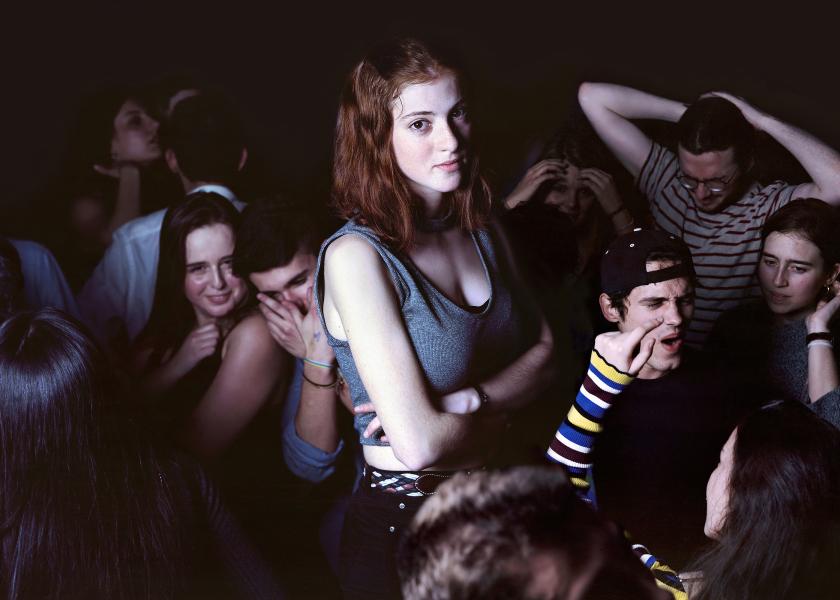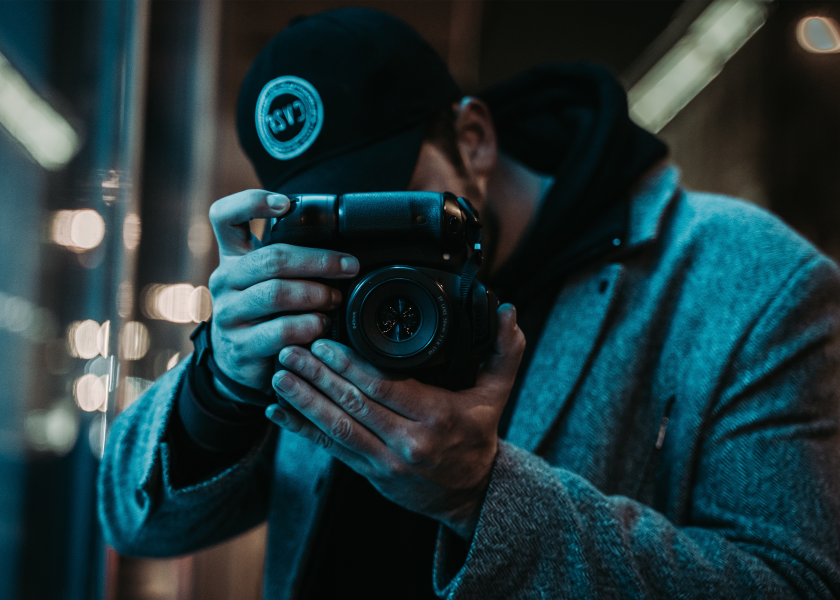Javier Salas
With Salas You Always Look Great, Really Great
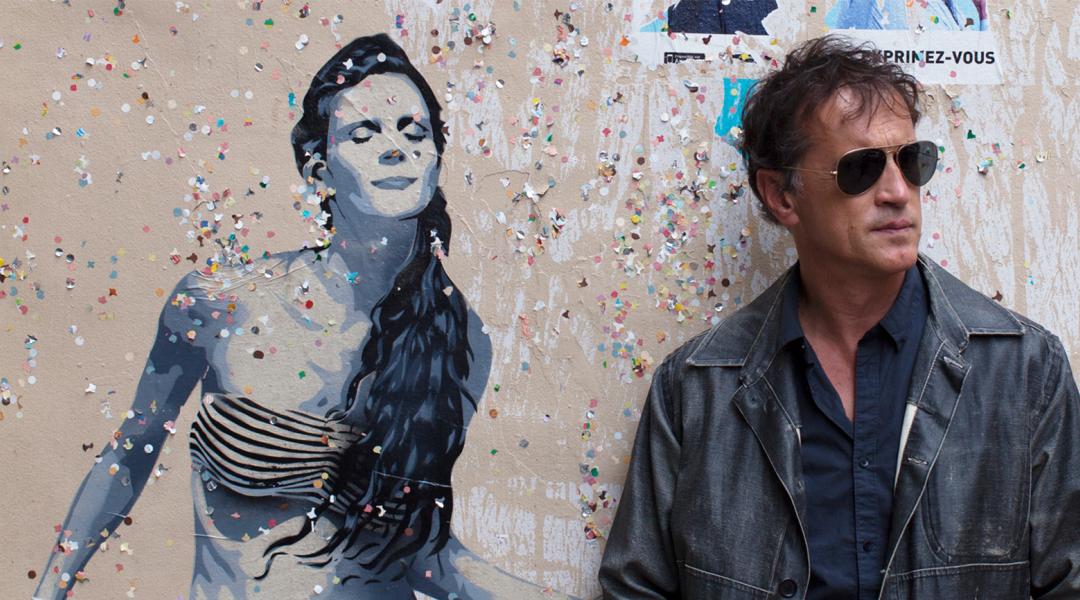
It’s time to reclaim one of Spain’s most established and talented photographers, probably one of today’s best portraitists. Hardened in many battles, Javier Salas is the one to call when a cover is meant to endure. Records, heavyweight magazines and leading newspaper supplements know that. With Salas you will always look great.
We meet Javier Salas (Santander, 1965) in Matute, one of Madrid’s most charming squares, right in the heart of the ever-effervescent Las Letras neighbourhood. Today it’s not about discussing the approach of the next photo session. Today it’s about giving due prominence to a brilliant artist and his exhibition In Azure and Gold, a show divided in two parts that focuses on men and women who are legends of flamenco in singing and dancing. Firstly, a group of ten protraits of well-known artists like Rosalía, Estrella Morente or Carmen Linares, among others, whas shown in San Lorenzo church in Úbeda, Jaén, but also on the facade of Santander’s City Council as part of PHotoESPAÑA 2019. The second part of In azure and Gold exposition is being launched on August 31st —in Úbeda thanks to the initiative of the cultural association Peor para el sol. Antonio Flores, Paco de Lucía... Ten souls captured with the unique sensibility of a doctor who never got to act as such: the best and most diverse male figures of the genre, looking at camera without artifice.
How did the idea for this exhibition come about?
Peor para el sol, a cultural association from Úbeda, called me because Joaquín Sabina had told them about me and about some photographs I had taken of him. I met them and they suggested this exhibition, which would be shown in a magical place—a restored convent I fell in love with straightaway. The first idea focused on flamenco women, but a year later I decided to also include men, which is what is being launched in Úbeda in August 31st. I’m so delighted!
Could you share three tricks to make a great portrait...
There are no tricks to it. Well, there’s maybe one—to make people feel as comfortable as possible in a quiet environment. That forces you focus entirely on them.
The world is divided between people who enjoy posing and people who suffer before the lens of a camera, isn’t it?
I would say during the first minutes everyone feels a little uncomfortable, no matter they are actors or someone who has been photographed a thousand times. My job is to gain people’s trust. Public or famous figures are usually intelligent people who quickly understand what you are looking for. You have to connect.
You studied medicine. When did you realize you wanted to be a photographer?
That was early during my degree because medicine really scared me. I gradually lost interest in my classes, in the hospital, in the role of doctors. I decided not to contradict my parents and finish it, but I knew photography was really my thing. My first camera was a Pentax, a present, but it didn’t last long. Shortly after that I got myself a Rolleiflex with one lens and later on one with two.
When did you become professional?
I was about 17. I started taking photographs of musicians, of bands that I knew and liked. My first job was for a band called Los Dorados, who are still active. It's funny—I took 24 analog photos and each of them was completely different from the one before. They were different times. (Laughs).
“The fewer limitations I have, the better photos I take”
Your name is closely associated with Spain’s best lifestyle magazines and newspaper supplements. Have you always felt free to do what you’ve wanted?
Lifestyle and fashion magazines limit you quite a lot because of advertisers and the firms they feature. Supplements such as El País Semanal, or the early Tentaciones, give me you much more freedom. (On the table there is a recent EPS issue with a cover devoted to new Cuban music photographed by Salas). If there is something that I have learned with time is that I’m a rather pure portraitist and that the fewer limitations I have, the better photos I take. My best photos, the most iconic ones, were not fashion magazine commissions.
How did you experience the transition from analog to digital?
It was too bad because it took me a long time to feel comfortable—I felt no connection. I kept shooting for a long time in analog and didn't retouch anything, until I realized there was a big difference between my work and that of other photographers, and that it was starting to hurt me. It was complicated, but I managed it positively. The connection returned.
It’s always about fighting, isn’t it?
It is, but nowadays everything is harder. People running magazines or record labels are kids who don't even know you. At this point you have to show you are not a dinosaur and that you can either handle a 18-year-old rapper or María Dolores Pradera. I guess being young consists partly in denying everything before you. The best photographers in the world today are about 70 years old. That’s a fact.
And what do you think about the prevailing trend of unclean, unfocused photography? Is it just about favouring the ugly or about lack of technique?
Well, those are trends that come and go. Favouring the ugly in photography is not new, now it's back on Instagram and other social networks. It happens to me a lot lately that I work with artists who propose ideas that are just screenshots from Instagram.
Going back to In Azure and Gold, do flamenco people make for more expressive portraits?
Totally. The keyword is ‘tronío’—you don't know what is happening or why, but when they get in front of a camera they become pure strength and energy. All of them.
Who is the more exciting figure you have ever portrayed?
I’ve lived unique moments with incredibly talented, wise people. I’ll never forget José Saramago and the days I spent with him and his wife, Pilar del Río, just being with them, understanding how they think and how they live. Listening to the likes of them is wonderful.
Any bad experiences?
I'm not good with comedians (Laughs). I guess it’s because they don't feel like being funny all the time, but I didn't know how bad tempered some of them can be.
If we had several lives... would you be a photographer again?
I have no idea, but I’m sure I would approach it from some creative point of view.
